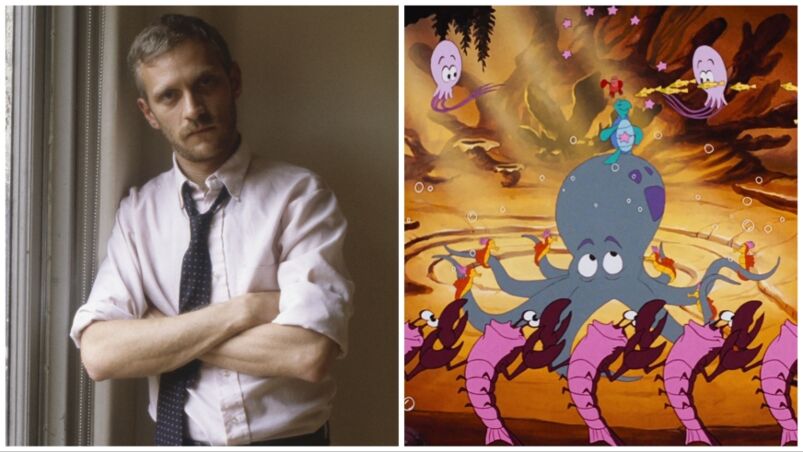
At this weekend’s 96th annual Academy Awards, Billie Eilish is poised to win Best Original Song for her sublime Barbie number “What Was I Made For?,” keeping with the tradition of a category that has historically been very queer (not to mention, would make her the youngest ever two-time Oscar winner).
With that in mind, let’s take a look Oscar-winning song by an LGBTQ+ writer, one that was first released 25 years ago and was part of an animated film that basically changed cinema as we know it: “Under The Sea” from Disney’s The Little Mermaid, with music by Alan Menken and lyrics by the legendary, late Howard Ashman.
Your dose of fabulosi-TEA
Subscribe to our newsletter for your front-row seat to all things entertainment with a sprinkle of everything else queer.
Back in the ’80s, Ashman and Menken were riding high off the success of Little Shop Of Horrors, a musical that became a Broadway smash and later a hit movie (of which Ashman wrote the screenplay), earning the pair their first of many Oscar nominations for “Mean Green Mother From Outer Space.”
After being tapped by Disney to work on a song for Oliver & Company, the then-floundering (no pun intended) animation studio showed Ashman their plans for an adaptation of a Hans Christian Andersen tale, The Little Mermaid.
As the story goes, Ashman was enthralled by the idea, and made one suggestion that would change everything: The movie should be a “Broadway-style” musical. Disney made the songwriter a co-producer on the film, and one of his first orders of business was to bring his collaborator Menken on board for the music.
Though Ashman had been living his life as a gay man (he was partnered with architect Bill Lauch by then), he was not out professionally, and had privately expressed concerns over getting fired if he’d ever be found out.
Still, he managed to bring an undeniable queer sensibility to The Little Mermaid—most famously, it was Ashman who encouraged the studio to look to irreverent drag legend Divine as inspiration for their witchy villain, Ursula.
Related:
A drag queen? In a Disney movie!? It’s true…
Don’t act so surprised.
Another game-changing suggestion of his was that Ariel’s crab mentor, Sebastian—originally conceived to have a British accent—should be Jamaican. Of course, that decision was pivotal in informing the sound and Sebastian’s show-stopping number, “Under The Sea,” which pulled heavy influence from reggae and Caribbean calypso music.
Sung by Samuel E. Wright (the voice of Sebastian), the number is a vibrant party-starter, packed full with brilliantly witty role calls of different instruments and ocean critters. Even outside of the movie, its charms are undeniable, becoming one of the crown jewels of the extensive Disney songbook.
“Under The Sea” was even released as a 12″ single in 1990—with the artist listed as “Sebastian C”—and went 2x Platinum in the U.S. with over 2 million in sales. The single was packaged with a number of fun remixes including the “Mermaid Dub” and a “Jellyfish Mix,” which, for our money, is kind of giving Madonna‘s “Where’s The Party?,” no?
At the 62nd Academy Awards, “Under The Sea” was among the nominees for Best Original Song, as was Ashman and Menken’s romantic “Kiss The Girl” from later in the same film. But the more uptempo track won out, also besting Cher and Peter Cetera’s “After All” from the rom-com Chances Are, Randy Newman’s “I Love To See You Smile” from Parenthood, and “The Girl Who Used To Be Me” from Sherry Valentine—performed by Patti Austin and written by Marvin Hamlisch (who Ashman had worked with on the Broadway musical Smile.)
In their acceptance speech, Ashman cracked he wouldn’t do “fish jokes” and kept it short and sweet, thanking the team at Disney, the voice of Sebastian Samuel E. Wright, and “at home, there’s my mom, there’s my sister, there’s Nancy, and Bill—I feel really lucky.”
It wasn’t widely known at the time, but that Bill he thanked? It was his partner, Bill Lauch!
Of course, it’s Disney that should’ve been thanking Howard Ashman. Thanks to his creative input and inimitable songwriting talents, The Little Mermaid was a success, far out-grossing its previous Oliver And Company and becoming (at the time) the animated film with the highest gross from its initial run.
The film also kickstarted what is now recognized as the “Disney Renaissance,” from 1989 to 1999, rescuing the studio from its post-Walt Disney slump, producing a string of critical and commercial hits including Aladdin (based off an initial pitch from Ashman) and Beauty And The Beast—both of which featured music from Ashman and Menken—and beginning its path toward modern Hollywood powerhouse.
It’s been said that, backstage the night of their “Under The Sea” Oscar win, Ashman told Menken they needed to have a serious talk. Days later, he shared he had been living with AIDS. “I didn’t want to tell you because I didn’t know how Disney would react,” Menken recalled Ashman telling him. “Here I am, a gay man, and I’m working on a movie for kids, and I didn’t want to be fired.”
Related:
Disney did eventually find out, but by that point were well aware what a crucial part of their success Ashman had become. Becoming increasingly ill, Ashman reluctantly worked on the music for Beauty And The Beast, and is said to have been responsible for humanizing the character of the Beast, likely a coded nod to the way those with AIDS were treated at the time.
Ashman died of the disease on March 14, 1991—less than a year after he had won the Oscar for “Under The Sea.”
At the 64th Academy Awards in 1992, Ashman was posthumously nominated three times in the Best Original Song category alongside Menken for their work on Beauty And The Beast. When the eponymous number “Beauty And The Beast”—sung by Angela Lansbury—won the Oscar, Menken briefly spoke on behalf of Ashman, and then gave the stage to the lyricist’s partner, Bill Lauch:
“Howard and I shared a home and life together, and I’m very happy and very proud to accept this for him. But it is bittersweet. This is the first Academy Award given to someone we’ve lost to AIDS. In working on Beauty And The Beast, Howard faced incredible personal challenges but always gave his best. And what made that possible was an atmosphere of understanding, love and support. That’s something everyone facing AIDS not only needs, but deserves.”
It’s impossible not to smile every time you hear “Under The Sea,” and not just because it’s an exuberant, catchy, timeless song—but also because it reminds us of the infallible talent and spirit of Howard Ashman, whose legacy is an integral part of LGBTQ+ history at the Oscars, at Disney, and Hollywood at large.
For more insight into Howard’s life and impact at Disney, we highly recommend you stream the 2018 documentary Howard, currently available on Disney+.
Related:
Meet the legendary Disney lyricist lost to AIDS who wrote the soundtrack to our childhoods
Did you grow up on ‘The Little Mermaid’, ‘Beauty and the Beast’ and ‘Aladin’? Howard Ashman is the man to thank.

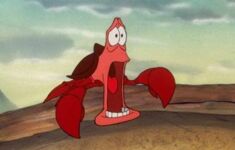
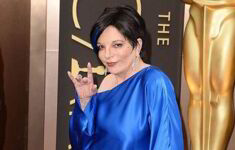


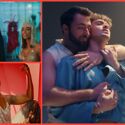





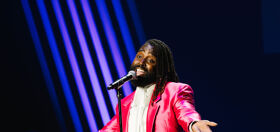
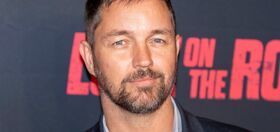
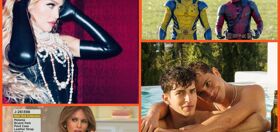


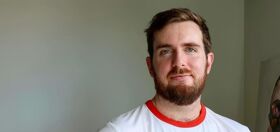
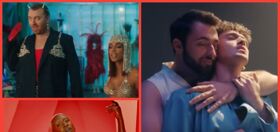
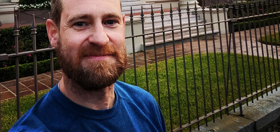

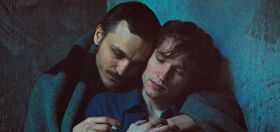
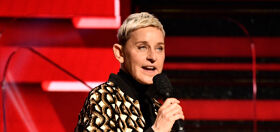
dbmcvey
A brilliantly talented man. A huge loss to theater and film. He is truly missed.
monty clift
He truly is a great loss. I wish he could have lived longer. Had he been able to branch out and make his art on his own terms, he would have put Disney to shame.